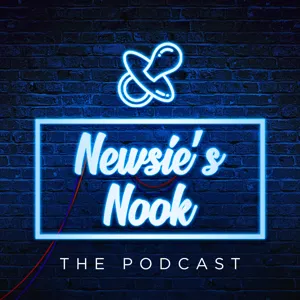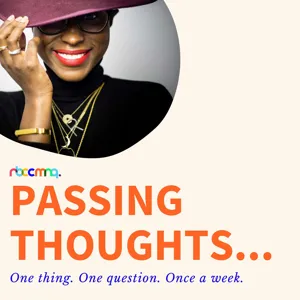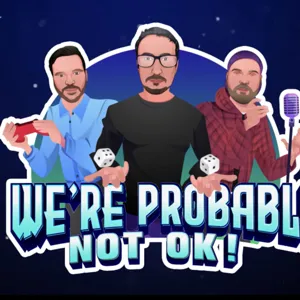Podcast Summary
California's approach to mental health and personal finance: California invests in mental health through wellness coaching and personal finance through rewards programs. Understanding the science of the mind and sharing income-generating opportunities can lead to improved well-being.
Mental health is a crucial issue for our youth, and California is taking steps to address it by training certified wellness coaches. These coaches help young people build essential skills for better mental health. Meanwhile, technology like the Apple Card offers rewards that can make everyday life more financially rewarding. Looking beyond personal matters, the story of Richard Ratner, a doctor drafted to Vietnam during the 1970s, reveals insights into the science of behavior change. His experiences showed that our minds don't always lead us to true happiness and that understanding the science of the mind can help us make better choices. Additionally, platforms like Airbnb offer opportunities for individuals to earn income by renting out their homes while they travel. Overall, these examples show that small changes and investments in ourselves and our resources can lead to significant improvements in our lives. For more information on wellness coaching in California, visit cawellnesscoach.org. To learn more about the Apple Card, visit apple.co/cardcalculator. And to explore the potential of renting out your home, go to airbnb.com/host.
Addiction epidemic among soldiers during Vietnam War: The Vietnam War highlighted the need for addressing root causes and providing support for addiction recovery
During the Vietnam War, soldiers faced a significant challenge with boredom and turned to drugs, particularly heroin, as an escape. The availability of heroin led to an epidemic of addiction among soldiers, causing concern for the military and the public. While the army successfully helped soldiers detox through cold turkey methods, the bigger challenge was helping them avoid the behavioral aspects of their addiction. The soldiers, many of whom were young and under immense pressure, lacked the necessary skills and support to overcome their addiction and lead happier, healthier lives. This experience highlights the importance of addressing the root causes of addiction and providing effective support systems for those struggling with substance abuse.
Focus on environment for habit change: Instead of relying on willpower to change bad habits, make environments conducive to desired behaviors for automatic habit formation, leading to lasting change.
Willpower is not the most effective way to change bad habits. According to professor Wendy Wood, author of "Good Habits, Bad Habits," we should focus on setting up our environments to make desired behaviors automatic instead. This approach, known as "making the environment work for you," involves creating situations that make it easy to repeat positive behaviors, which can lead to them becoming habits. By understanding how habits work and utilizing this strategy, we can make lasting changes that promote our health and happiness, without relying on the self-defeating nature of willpower.
Understanding Rewards and Income Streams: Apple Card offers varying rewards, Airbnb hosting generates income, and habits involve a routine and a reward to change behaviors.
Apple Rewards offer different percentages based on the type of purchase, while Airbnb hosting can provide extra income and a sense of home even when traveling. Another key takeaway is the power of habit formation in changing behaviors. Psychologist Wendy Wood explains that habits are behaviors we repeat until they become mental shortcuts, requiring a specific routine and a reward. These habits can lead to positive outcomes, like making a cup of coffee in the morning or hosting travelers on Airbnb. To recap, Apple Card offers varying rewards for purchases, Airbnb hosting can generate additional income, and habit formation involves a routine and a reward to change behaviors.
Our brains create habits through chunking: Understanding neural systems and context helps control habits. Habits are mental shortcuts, but not all are beneficial. Brain is on autopilot for habitual behaviors, making change challenging. Context plays a crucial role in triggering habits.
Our brains create habits by storing sequences of behaviors as automatic routines, called chunking. This process is facilitated by different neural systems - the sensory motor system for repeated behaviors and the frontal lobes for new tasks. Habits are mental shortcuts that allow us to efficiently and quickly perform complex behaviors without conscious thought. However, not all habits are beneficial. Our brains are on autopilot when it comes to habits, making it challenging to change unwanted ones. The context, including location and time, plays a crucial role in triggering our habitual behaviors. Understanding this can help us gain control over our habits and make desired changes.
Environmental cues shape behaviors even when rewards are gone: Our surroundings can trigger habitual behaviors, sometimes unconsciously, even when the initial rewards are no longer present.
Our environment and the cues in it play a significant role in shaping our behaviors, even when the rewards from those behaviors are no longer present. This was highlighted in a study conducted by psychologist Wendy Wood, where she found that people continued to eat stale popcorn in a movie theater, despite not enjoying it, because of the strong association between the movie theater context and their habitual popcorn-eating behavior. Similarly, soldiers in Vietnam found that their surroundings, such as barracks or the sight of other GIs using drugs, could trigger their heroin addiction. Even something as simple as boredom can act as a trigger for checking one's cell phone. These cues can become so automatic that we don't even realize how much they influence us. It's important to be aware of this and understand that our habitual routines may not be sustainable once the cues disappear.
Supporting young people's mental health through various means: California is training wellness coaches, Airbnb hosting, and Express Employment offer solutions for mental health struggles and income generation, surprisingly low opioid use among Vietnam vets
Despite the challenges facing young people with mental health issues, there are solutions being implemented to help them thrive. California is building a workforce of certified wellness coaches to support children and youth in improving their mental health. Meanwhile, for those looking to earn extra income, becoming an Airbnb host or seeking employment assistance from Express Employment Professionals are viable options. An unexpected finding from history reveals that returning soldiers from the Vietnam War, despite being labeled as potential drug addicts, had a surprisingly low rate of continued opioid use upon returning home. These stories remind us of the resilience and potential for positive change in individuals and communities. For more information on California wellness coaches, visit cawellnesscoach.org. To explore opportunities with Airbnb or Express Employment Professionals, check out airbnb.com/host and expresspros.com, respectively.
Environment influences behaviors: By changing our environment, we can make it easier to adopt desired behaviors and harder to engage in unwanted ones, influencing nearly half of our daily actions
Our environment and context play a significant role in shaping our behaviors, even those we may want to change. This was observed in the case of Vietnam veterans who were able to overcome heroin addiction upon returning home due to a change in context. Nearly half of our daily behaviors are on autopilot, influenced by cues and context. By consciously manipulating our environment, we can make it easier to adopt desired behaviors and harder to engage in unwanted ones. This can be as simple as rearranging the placement of food options or understanding the influence of mood and feelings on our behavior. This concept, often referred to as "habit hacking" or "environmental design," can be applied in various settings, from homes to workplaces, to help us make positive changes in our lives.
Adding friction to daily routines for habit change: Creating intentional friction in our environment can help establish new habits and discourage unwanted ones, leading to progress towards personal well-being goals.
... by introducing frictions into our daily routines, we can effectively change our habits and make desired behaviors easier to adopt or unwanted habits harder to engage in. This concept was illustrated through the example of how the US government's top-down approach to adding friction to smoking led to a significant decrease in smoking rates. Similarly, individuals can hack their own habits by analyzing their environment and removing or adding frictions to promote positive changes. For instance, deleting social media apps or setting up a photo of a loved one as a screensaver can help establish new habits, while putting running shoes on and sleeping in workout clothes can make exercising more convenient. By using our conscious brain to intentionally create friction, we can effectively reprogram our autopilot and make progress towards our personal well-being goals.
Investing in Mental Health and Wellness for Youth: California trains wellness coaches for youth, San Diego offers a happy environment, Canva presentations save time for professionals, prioritize mental health for a happier life.
Investing in mental health and wellness, especially for our youth, is crucial for their overall happiness and well-being. California is leading the way by training certified wellness coaches to help young people develop essential skills to improve their mental health. Meanwhile, places like San Diego offer an environment conducive to rest, recharge, and happiness with its sunny weather, welcoming people, and beautiful scenery. Additionally, tools like Canva presentations with AI-powered assistance can help professionals create effective work presentations, saving time and focus. By prioritizing mental health, seeking out positive environments, and utilizing efficient tools, we can all strive for a happier, healthier life. For more information on California wellness coaches, visit cawellnesscoach.org. To explore San Diego, go to sandiego.org. Discover Canva presentations at canva.com.




